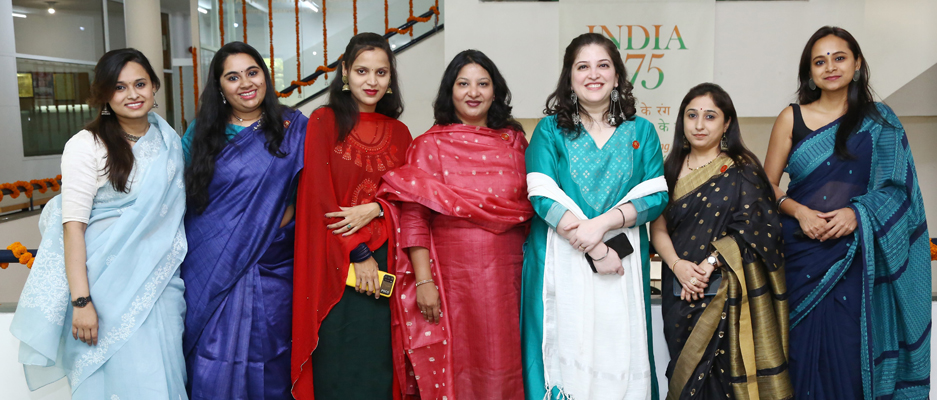Biodeterioration and Heritage
Biodeterioration and Heritage(Online)

Aim
This interdisciplinary course will provide insights into the science of biodeterioration with special reference to architectural and material heritage of India.

Background
The architectural wealth comprising various monuments and other structures along with the material-based items such as old paintings, shrouds, wooden structures and other artefacts form an integral part of cultural heritage in India. However, with passage of time, all these structures & artifacts undergo various undesirable changes often caused by different groups of organisms coupled with changing climatic and weather conditions. These impacts which are referred as ‘Biodeterioration’ have become a burgeoning issue especially in a tropical country like India. With the passage of time and based on local microclimatic conditions the impacts of different biological organisms including various groups of microorganisms, plants and even insects/pests on architectural & material heritage become more conspicuous creating a wave of concern especially for people involved in conservation of heritage. Hence, it has become even more imperative to understand and document the types of biologically induced deterioration impacts along with its extent and mechanisms in order to develop appropriate mitigation strategies. However, despite there being some considerable studies in this field globally, there has been limited awareness and almost negligible training in this subject. Hence, this first of its kind workshop is developed especially for the early career or mid-career participants to think out of the box and develop novel ideas in this interdisciplinary branch of study.

Focal Themes of this course:
 Understanding the mechanisms of physical and chemical biodeterioration on heritage structures
Understanding the mechanisms of physical and chemical biodeterioration on heritage structures Identification of the causal organism groups and their relationships with architectural pattern
Identification of the causal organism groups and their relationships with architectural pattern Role of various environmental factors in biodeterioration activities
Role of various environmental factors in biodeterioration activities Some important case studies and examples from different parts of India
Some important case studies and examples from different parts of India Evolving techniques in biodeterioration studies
Evolving techniques in biodeterioration studies Conservation of heritage structures vis-à-vis conservation of biodiversity
Conservation of heritage structures vis-à-vis conservation of biodiversity Career perspectives and future scope of studies in this field and allied fields
Career perspectives and future scope of studies in this field and allied fields
Potential benefits from the course:
 The participants will be exposed to an interesting and interdisciplinary branch of study involving natural and architectural heritage
The participants will be exposed to an interesting and interdisciplinary branch of study involving natural and architectural heritage This course will be equally beneficial to those involved in biological sciences or in architectural studies and act as a much-needed bridge between these subjects
This course will be equally beneficial to those involved in biological sciences or in architectural studies and act as a much-needed bridge between these subjects A mix of theoretical lectures and field visit will ensure complete understanding behind mechanisms of biodeterioration
A mix of theoretical lectures and field visit will ensure complete understanding behind mechanisms of biodeterioration The involvement of different subject experts will provide insights into the identification techniques of deterioration causing organisms
The involvement of different subject experts will provide insights into the identification techniques of deterioration causing organisms The participants will be shared with some important literature references and a case study from Delhi for their reference
The participants will be shared with some important literature references and a case study from Delhi for their reference Continuous interactions and query solving by the subject experts will help in fortification of the subject understanding
Continuous interactions and query solving by the subject experts will help in fortification of the subject understanding Detailed enumeration about work done till now vis-à-vis upcoming techniques and their possible implementation will enable in developing future studies in this field
Detailed enumeration about work done till now vis-à-vis upcoming techniques and their possible implementation will enable in developing future studies in this field

Speakers:
The course will be taught by the staff at INTACH, leading subject experts and invited guest speakers on specific aspects of the course.

Registration Fees
Rs. 6,000 +18% GST
10% concession for INTACH members and Alumni
20% concession for students
[This includes registration fee, delegate pack, any handouts for the course, refreshments, lunch, field visits, tools etc.]
Contact:
Dr. Sumesh Dudani
sumeshdudani@gmail.com



 Print
Print
